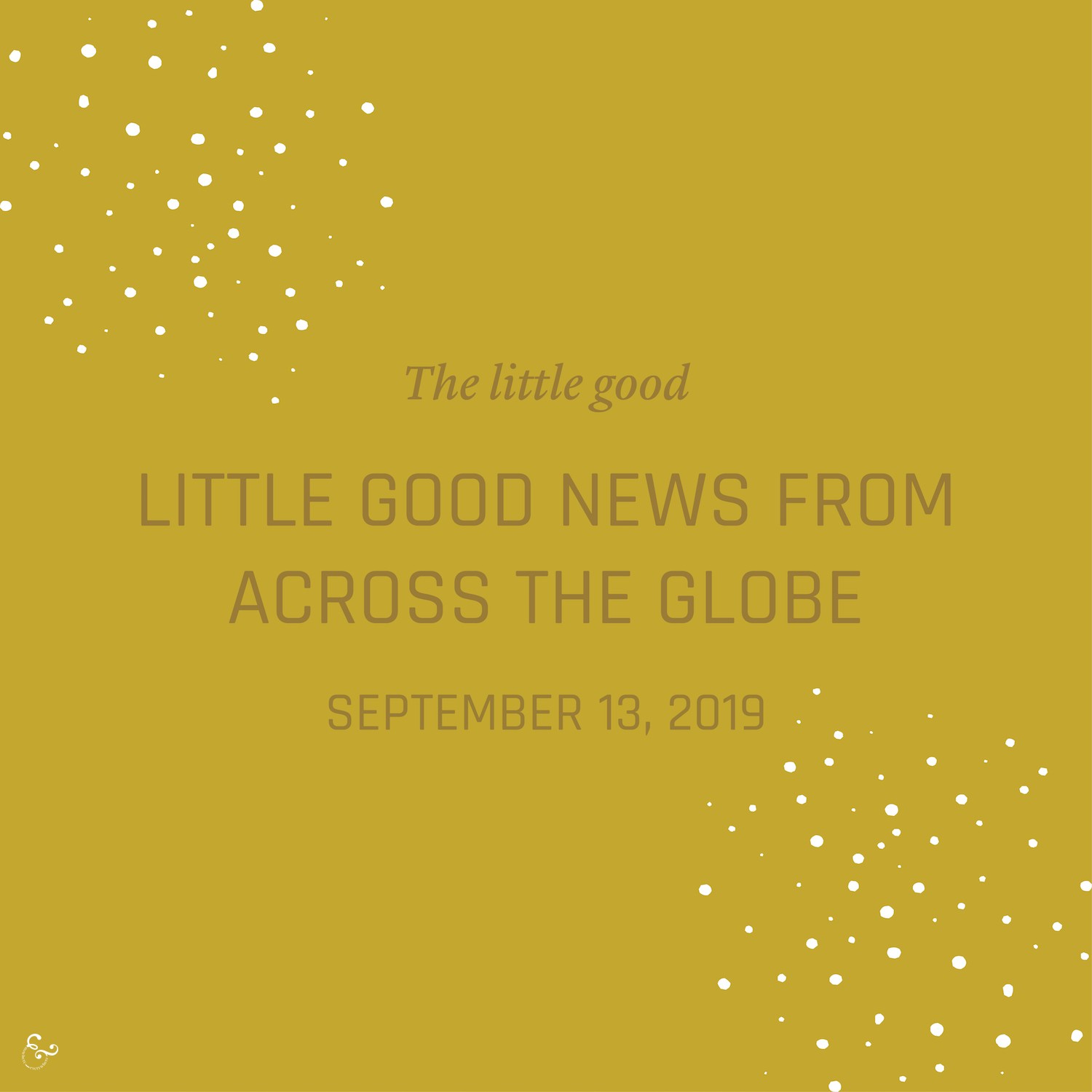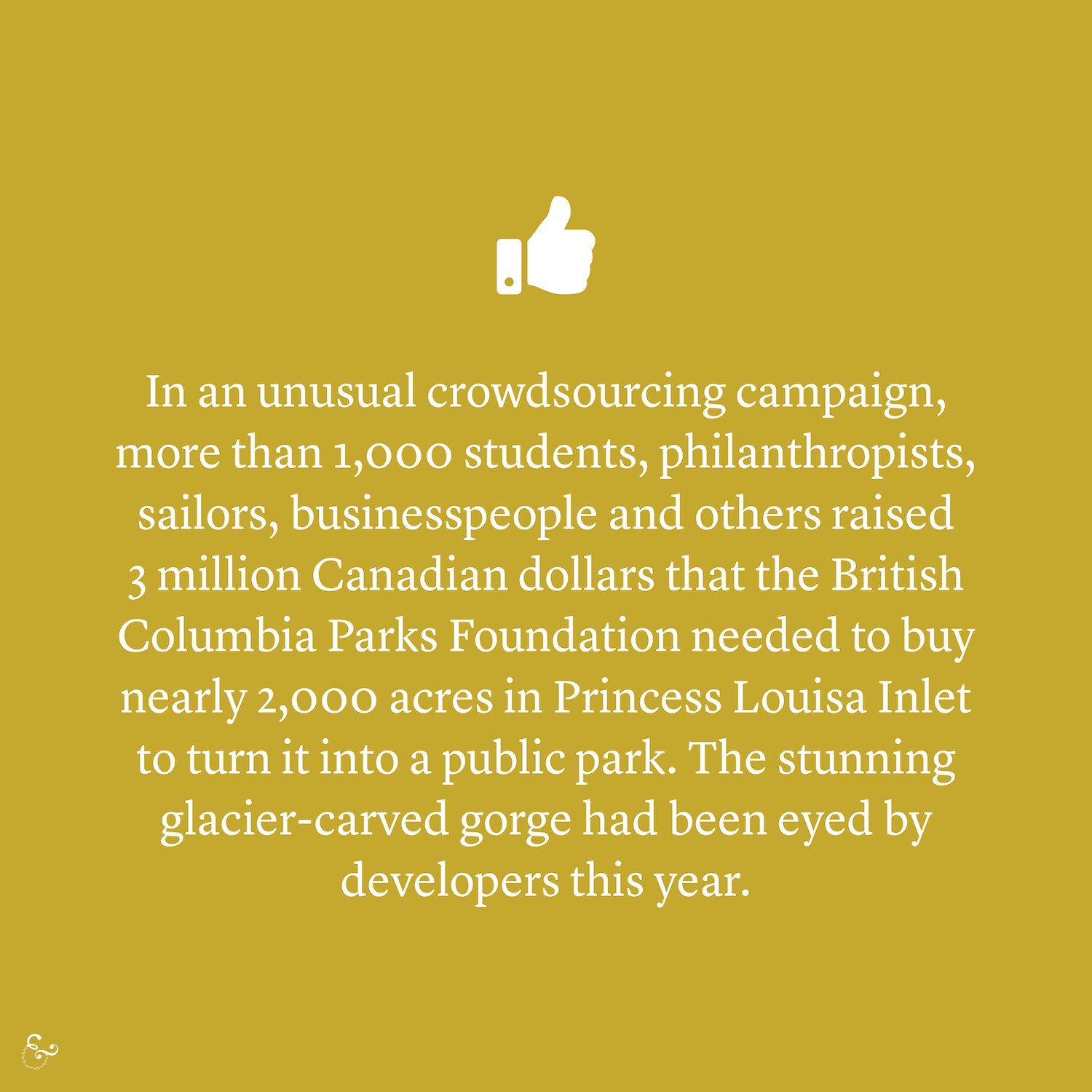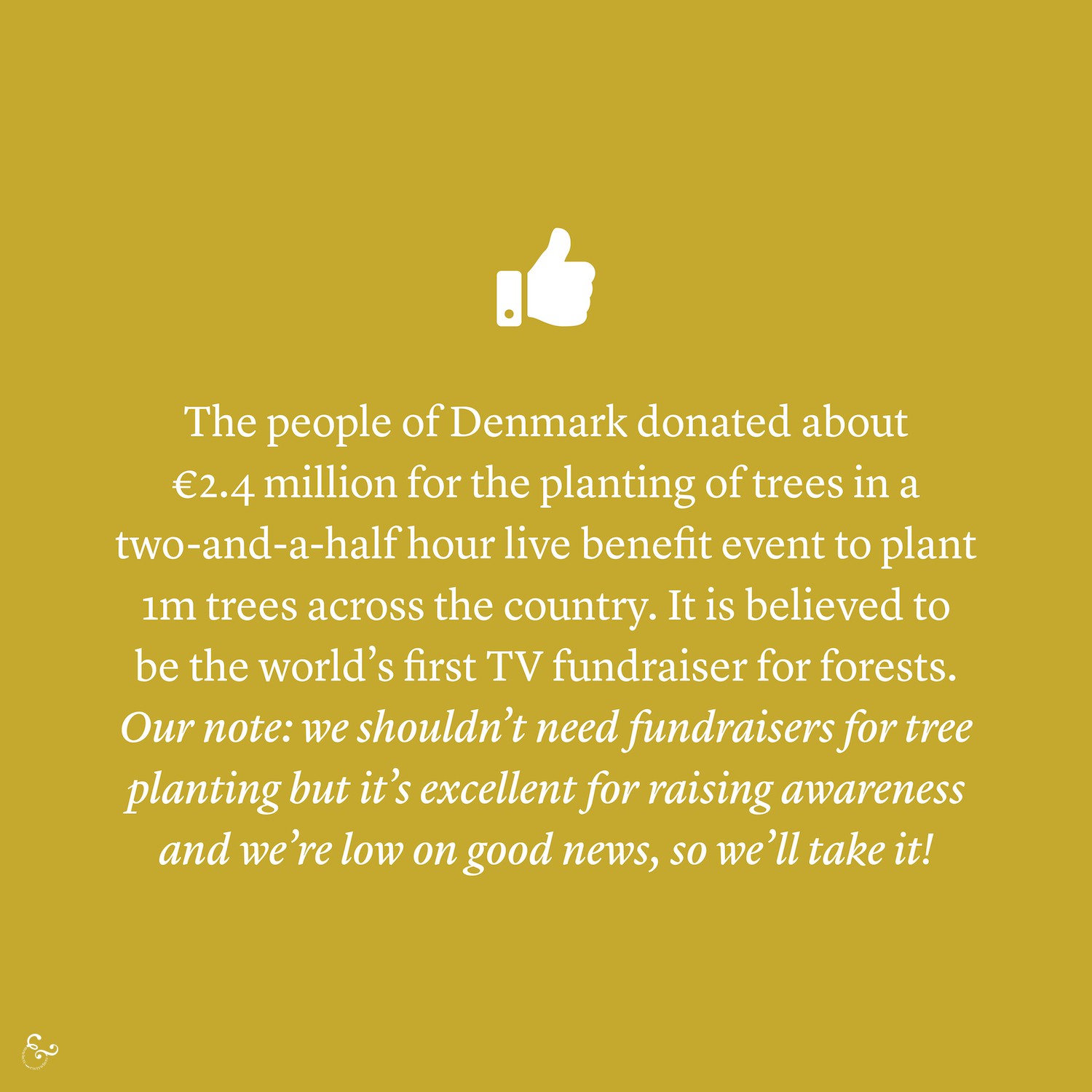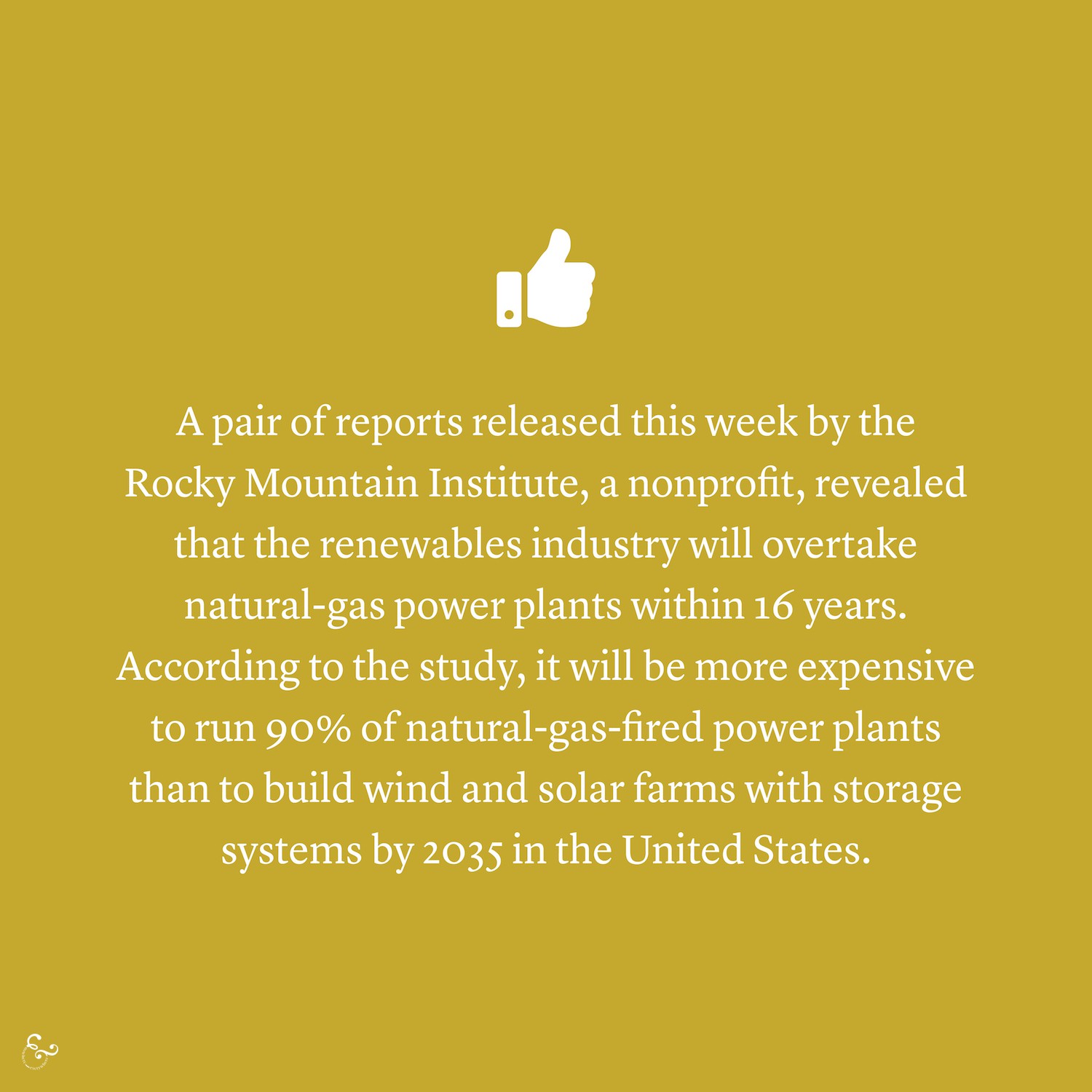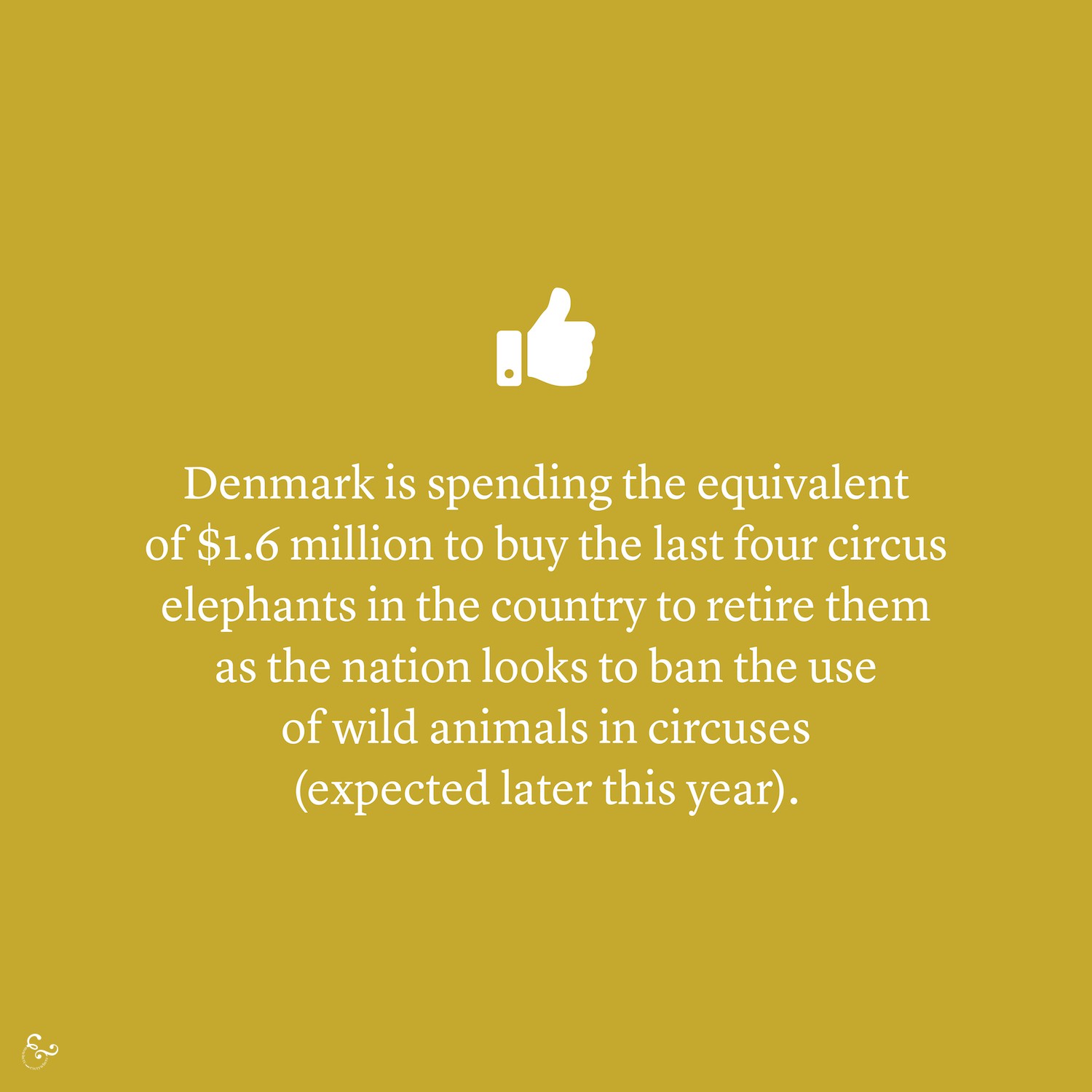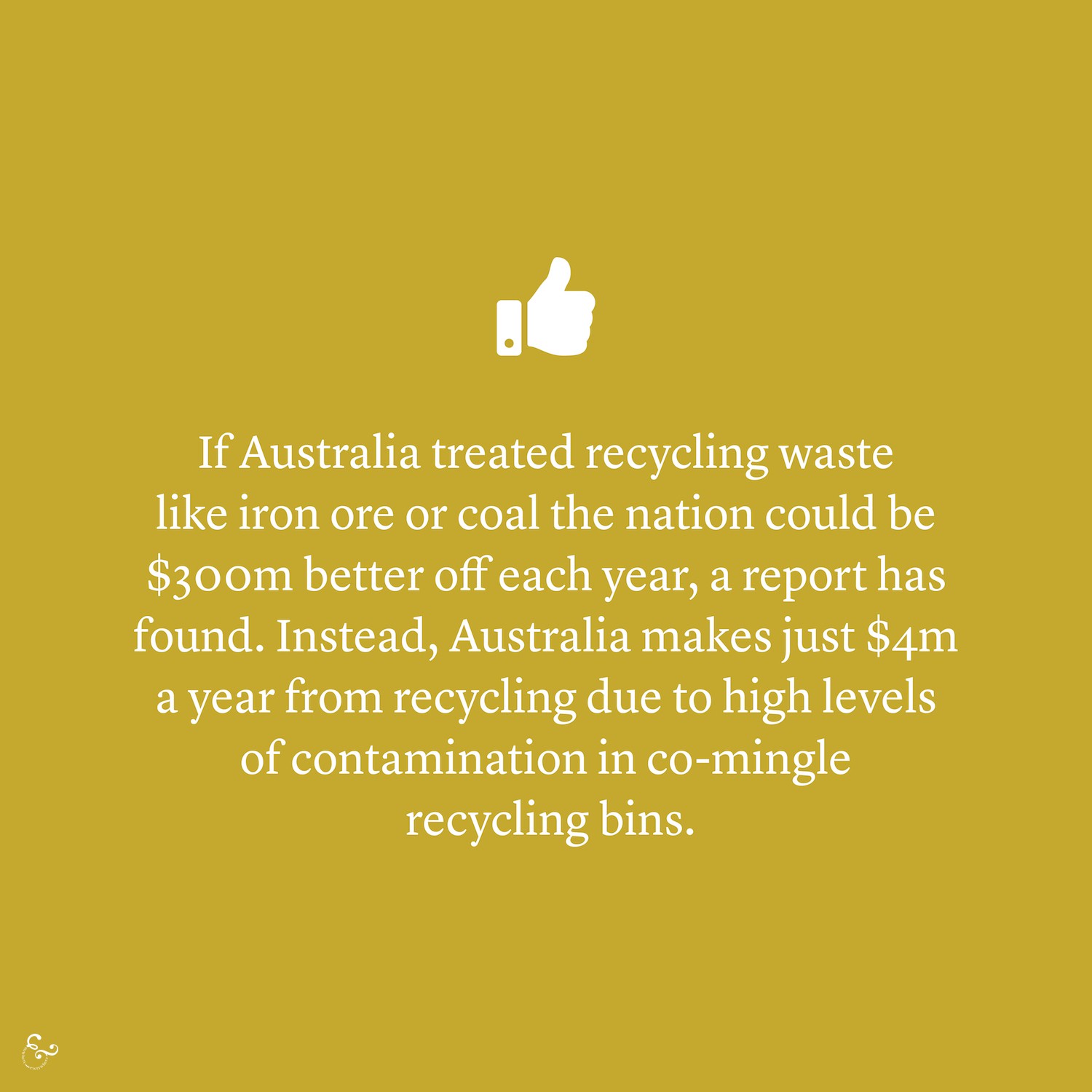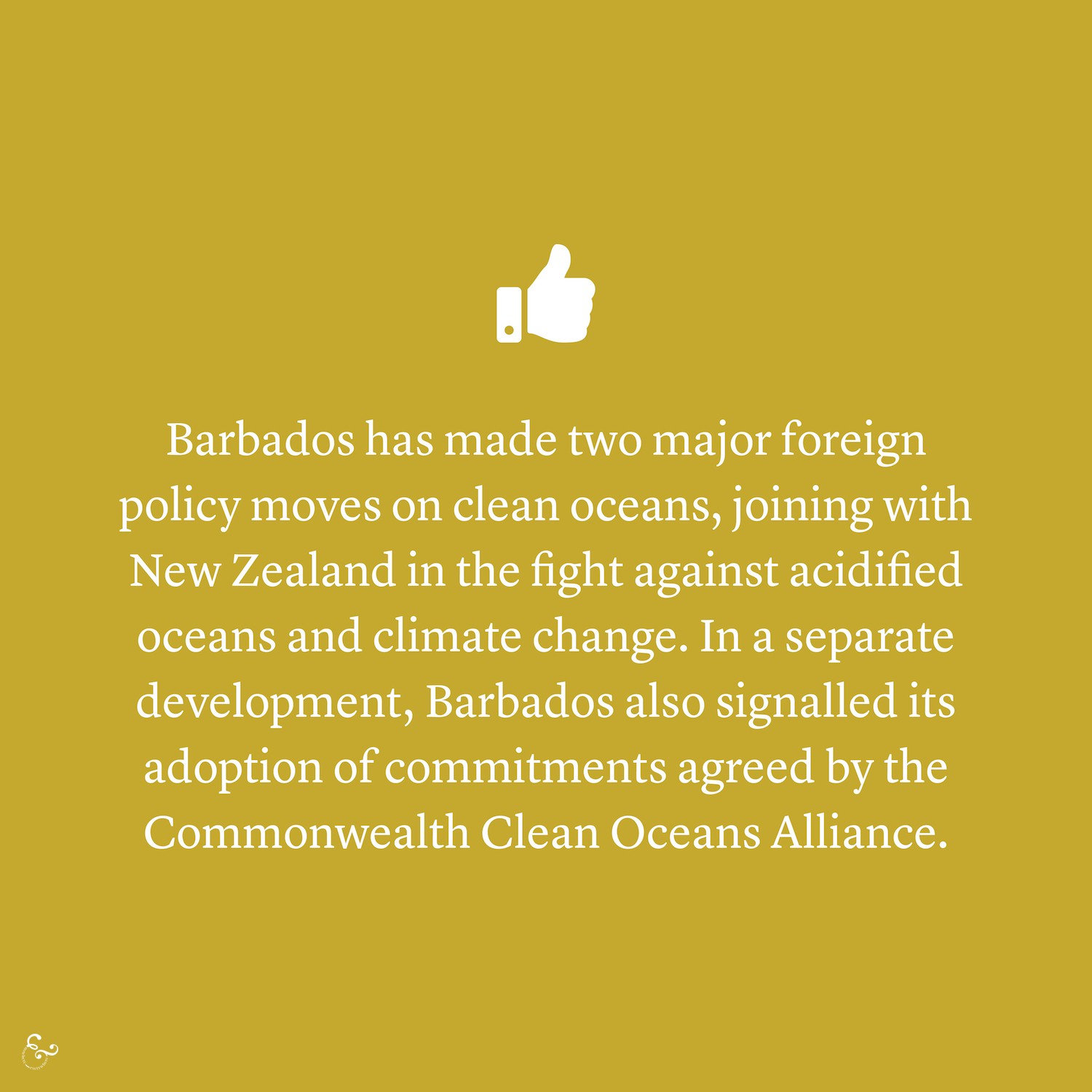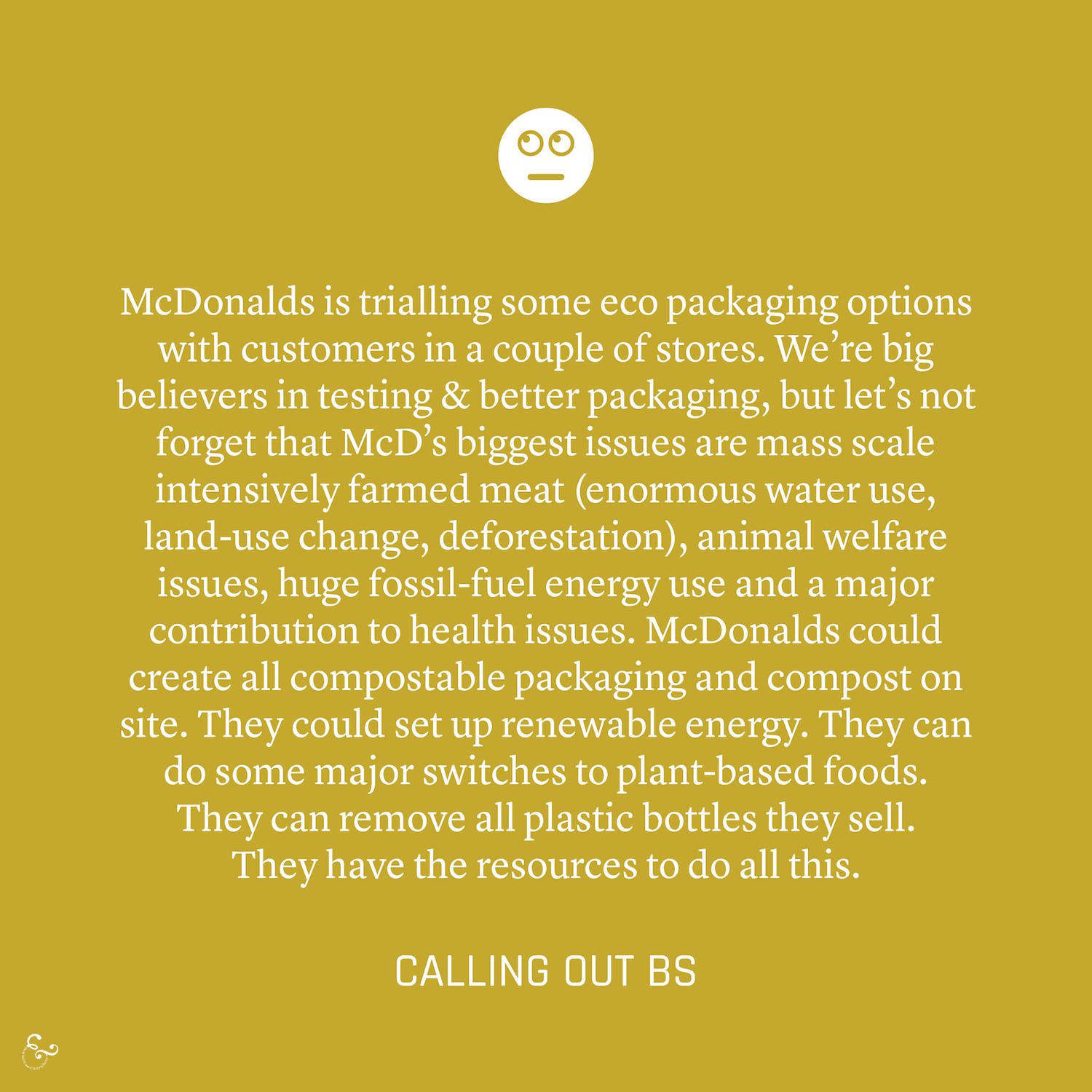Every week we do a major roundup of environmental news across the world. It is really important we all know it and share it, but it can also be pretty disheartening. The bad news is nearly always on a much, much larger scale than the good. The next few years are probably going to look the same as we enter climate feedback loops, profit incentives continue to grow, population increases and we continue to stall on our Paris Agreements. We’re interested in education, understanding systems, and the levers we can all pull for change.
But during this mammoth effort every week, we also get to see lots of little good news stories pass through our initial filter which we’re posting here. We can use these to inspire us, give us ideas in our own communities and potentially scale them up. Environmental good news can often be fairly greenwashed so we’re not interested in that and won’t consider it good news. If you see a story and decide to implement it where you live, we’d absolutely love to hear about it! Please tag us in or email us and let’s create a world of lots of local change which collectively has big impact.
- In an unusual crowdsourcing campaign, more than 1,000 students, philanthropists, sailors, businesspeople and others raised 3 million Canadian dollars that the British Columbia Parks Foundation needed to buy nearly 2,000 acres in Princess Louisa Inlet to turn it into a public park. Known as the “Yosemite of the North,” the stunning glacier-carved gorge had been eyed by developers this year. The land has important cultural significance to the shishalh, an Indigenous community, and its thickets of cedar and Douglas fir are home to grizzly bears, mountain goats and eagles. (NYT)
- Barbados has made two major foreign policy moves on clean oceans, joining with New Zealand in the fight against acidified oceans and climate change. In a separate development, Barbados also signalled its adoption of commitments agreed by the Commonwealth Clean Oceans Alliance. (Barbados Today)
- If Australia treated recycling waste like iron ore or coal the nation could be $300m better off each year, a report has found. Instead, Australia makes just $4m a year from recycling due to high levels of contamination in co-mingled recycling bins. (The Guardian)
- Denmark is spending the equivalent of $1.6 million to buy the last four circus elephants in the country to retire them as the nation looks to ban the use of wild animals in circuses. Food and Fisheries Minister Mogens Jensen told AP a ban on wild animals in circuses is expected later this year. (The Hill)
A pair of reports released this week by the Rocky Mountain Institute (RMI), a nonprofit to transition from fossil fuels, revealed that the renewables industry will overtake natural-gas power plants within 16 years. According to the institute, it will be more expensive to run 90% of natural-gas-fired power plants than to build wind and solar farms with storage systems by 2035 in the United States. (RMI / IE / Bloomberg)
- The people of Denmark donated about €2.4 million for the planting of trees in a two-and-a-half hour live benefit event to plant 1m trees across the country. Viewers were encouraged to raise money to help the Danish Society for Nature Conservation plant 1m trees, while 10% of the money raised would go to WWF to help save tropical forests. It is believed to be the world’s first TV fundraiser for forests. Our note: we shouldn’t need fundraisers for tree planting but it’s excellent for raising awareness and we’re low on good news, so we’ll take it!
- Calling out greenwashing. McDonalds is trialling some green packaging options with customers instead of plastic including wooden cutlery, paper straws, edible waffle cups, and burgers served in wrapping made from grass. McDonald’s produces 1.5 millions tons of waste annually. Our note: We’re big believers in prototyping & testing and getting better packaging options, but let’s not forget that McDonald’s biggest issues are massive scale intensively farmed meat (enormous water use, land-use change, deforestation), animal welfare issues, huge energy resource use and a major contribution to lifestyle diseases and health issues. McDonalds could create all compostable packaging and compost on site. They could set up renewable energy. They can do some major switches to plant-based foods. They can remove all plastic bottles and sodas they sell. They can stop filling their foods with chemicals. (Mental Floss / The Rising)
